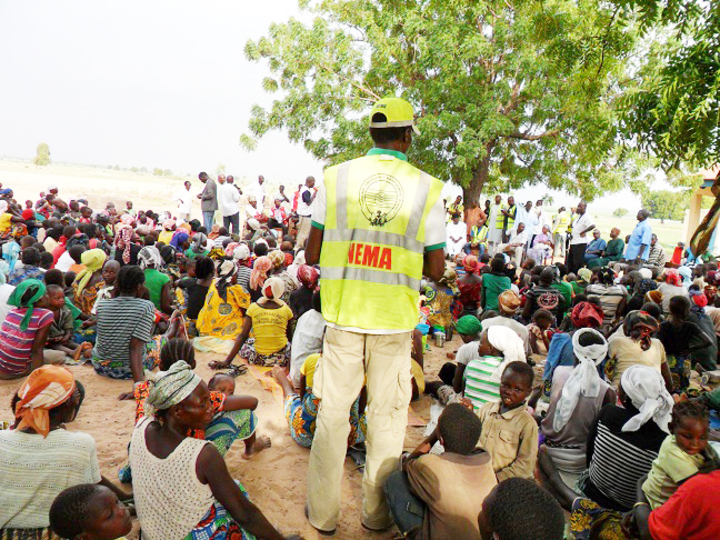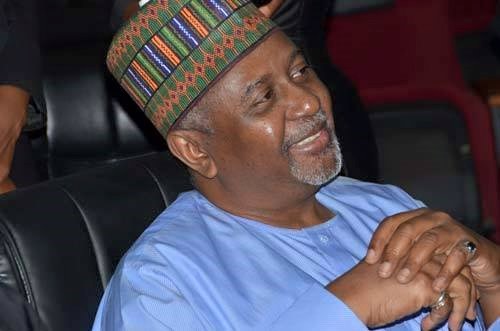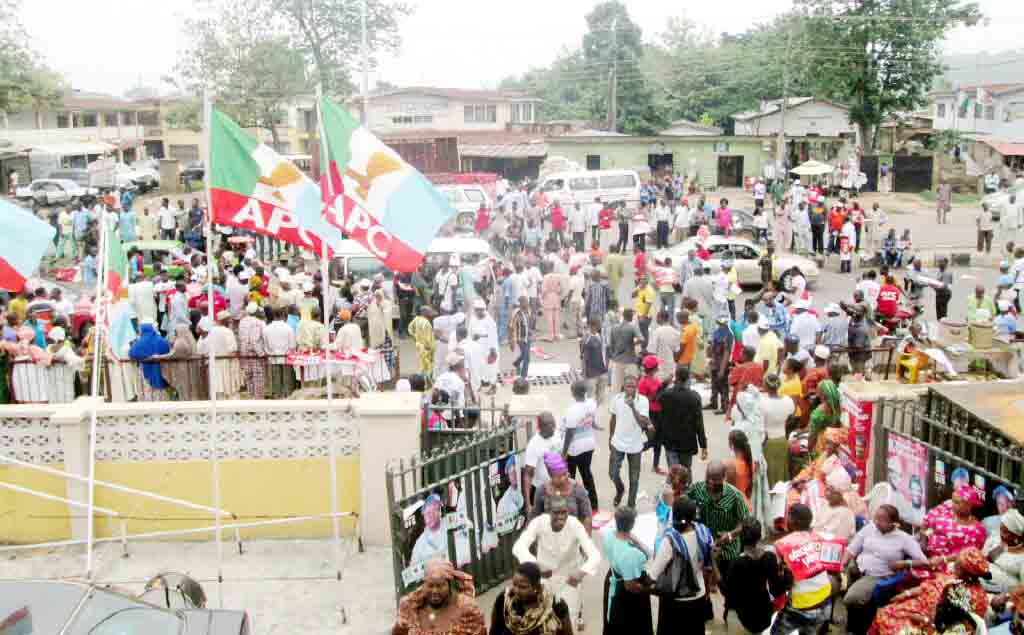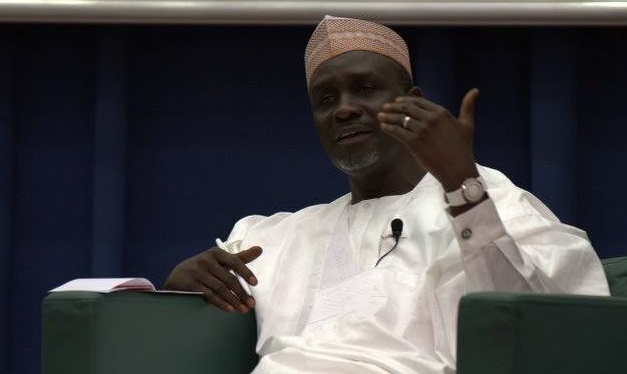On the 24th of October 2015, a red flag alert from Kaduna state began making rounds within social media circles over an alleged premature reintegration of 313 former members and captives of the dreaded extremist insurgent sect that has been terrorizing Nigerian communities in the last couple of years. The red alert was raised because information leaked, which claimed that the state government was preparing to transfer the former insurgent members and captives from their designated rehabilitation camp in Kaduna back to their respective home states of Borno and Adamawa. The transfer was initially expected to take place on the 26th of October 2015.
The former captives and members had been rescued by the Nigerian government earlier on in July, 2015 and the news of their rescue had been widely circulated. At the time of their rescue, it had even been wrongly reported in the media that some of the victims were among the Chibok girls.
The information suggested that over 270 captives and former members had been rescued from the insurgents in Sambisa Forrest, but the number rose to 313 when several others were saved around the same time. Following their rescue, the Federal authorities took the captives to designated camps around the country for a rehabilitation and de-radicalization program, termed, D-RAD. The program was to counter violent extremism by using a soft approach to “reform former insurgents, give rescued captives necessary support and prevent others from joining terrorist organizations and violent sects.” The captives are referred to as ‘Interest Persons’ (IPs) in the De-Radicalization Program. D-RAD was professionally designed to take place over the span of a year and the camps where the programs was to take place were situated in Kuje-Abuja, Kainji-Bauchi, Aguata-Anambra, Yola-Adamawa and Kaduna-Kaduna.
The IPs in the Kaduna camp are made up of women and children, whose ages range between 6 months to 80 years. The 13-year-old suspected suicide bomber, Zaharau, who was arrested after the December 10, 2014 bombing at the Kantin Kwari textile market in Kano State happens to be among the refugees presently going through rehabilitation in the Kaduna State camp. That particular camp is said to be one of the best and the safest in the country. It is thought to have the most well trained personnel and professionals, whom are committed and knowledgeable in the very important job of rehabilitating the captives. However, despite the fact that the rehabilitation camps have been set up in numerous states, present reports indicate that the Kaduna camp is the only one that is alleged to be in a hurry to let go of the former captives and send them back to their states, even though the proposed one-year de-radicalization process of D-RAD has not been completed.
Advertisement
If the state authorities really are making plans to prematurely transfer the IP’s back, it would be unfortunate for anyone to make a decision, which would thwart the potential of the Kaduna camp, setting a standard and being a Harbinger of a National way forward in rehabilitating indoctrinated and brainwashed captives.
When the reports came through on the 24th of October 2015 that the state government was, allegedly, making arrangements to transfer the former insurgent members and captives back to their home states of Borno and Adamawa within the shortest possible time, some human rights activists and concerned citizens raised that red flag alert. They rushed to the camps and reached out to members of the Kaduna state administration. They also went ahead to use the social media to spread the red alert. Once the alert engendered some racket on the Internet, the state government, together with other stakeholders, were prompted to pay a visit to the camp. Once the governor and other government officials got to the camp, they were informed that, in addition to not being provided with the very basic necessities of food, water and clothes, which the government had undertaken and was obligated to provide for the IPs, there was a dire concern of transferring the victims before the completion of the program and within the ensuing atmosphere in Borno and Adamawa.
Having heard the concerns and plight of the refugees and the activists, the administration gave the assurance that the camp would be provided with the basic necessities. The IPs would be fed until a time that the state government and other stakeholders put a well laid plan of reintegration in place, in line with the best interest of the IPs, program and communities at large. The state government categorically promised to liaise with relevant persons to ensure that the IPs were taken care of and remained in the camp until such a time that it would be proper to reintegrate them back into their communities.
Advertisement
However, despite the assurance they gave during the visit to the camp, the state authorities reneged on them. Besides not providing the food and basic necessities to the IPs that was agreed upon, the state government was believed to continue making plans to evacuate the first set of IPs back to Borno and Adamawa, at which a definitive date of Wednesday, the 4th of November 2015 was then given.
When the failure of the state administration to honor its promises became apparent, the cluster of concerned personnel and activists made great efforts to reach out and remind the authorities of the dire situation on ground, but they got no response. Out of necessity, the concerned personnel and activists approached the media in order to raise awareness. However, the mainstream media was also unresponsive.
The major concerns of the activists were that, having been in the Kaduna rehabilitation camp for only four months (some had been there even less), there was a real hazard of releasing these psychologically scared and potentially fundamentalist refugees before the D-RAD de-radicalization program had been completed. They were also concerned with the impoverished state that the IP’s were being maintained in the camp.
Try as they may to get the story out, activists and concerned personnel were unable to get news out to the public, even when they continuously reached out to some columnists and other forms of media. Every effort to get the story out from Kaduna onto a national plain, proved futile. Media would be contacted, reporters would go to the location, interview people, take pictures and record the accounts but then there would be nothing reported on the situation. Absolutely no news, clarification, denial or account on the camps or the state government’s alleged plans were coming out of Kaduna state onto a national grid! Whether the lack of media interest was due to the fact that the D-RAD refugee story was not about politics, feuding parties, or the names to be unveiled in a much anticipated #MinsiterialList, the story just seemed to evaporate from the national stage. “Puff…” Like the illusion of magic; real only in the sense that one doesn’t see or know how it is done; “Puff…” Like magic, the story never came out of Kaduna state!
Advertisement
However, even without the story getting national recognition, even if the state government had kept the promises it made to the refugees during the visit to the camp to equip it with the most basic necessities, the issue of releasing the IP’s prematurely before the one-year de-radicalization program is completed, is one that raises great concern. Taking cognizance of the behavioral evidence of captured insurgents and captives from the clutches of extremist sects, it would not be a surprise if some of the refugees exhibited signs of Stockholm syndrome or Post-traumatic stress disorder (PTSD). It has been reported that many have actually began exhibiting PTSD symptoms such as: reliving the trauma they went through while in captivity in their dreams; numbness; lack of involvement with reality; and recurrent harrowing thoughts and images.
It wouldn’t be a shock if the former insurgents still identified and nursed an empathy or sympathy to their former extremist sect, to the extent that they would pick up where they left off once reunited with other insurgents. It is very likely that the rescued IP’s have not healed from the mental and emotional stress or severe psychological shock, which may have been triggered by the terrifying events they may have experienced during their captivity. It is frightening to imagine what these people are presently living with in the deepest part of their minds; what they live with as part of their reality.
It will be of great concern for the professionals and Nigerians to know the exact mental condition and ideological outlook of the captives, who were formally in the possession of a brainwashing sect for so long. Unless there is absolute confirmation and proof that the former captives have been de-radicalized, it would be foolhardy and careless to thrust these distraught and, possibly, radical IP’s blindly into a society to face the Nigerian reality that challenges and pounds, even the strongest amongst us.
If there is a one-year program that has been professionally designed to de-radicalize, rehabilitate and heal the different categories of captives, then there is a solemn need for the authorities in Kaduna and every other state to ensure that each and every refugee completes the program. If the state government truly intends to prematurely transfer the IP’s back to the insurgency hot spots before the completion of the required program, what guarantee against a fall-out will they give Nigerians? Can the Kaduna state government be completely confident that all 313 of these former captives have been safely ‘de-radicalized’ in a manner that makes them ready and able to face the society, regardless of the fact that many of them have spent less than 5 months, of a proposed one year de-radicalization package, in the program?
Advertisement
What confidence can anyone have that these traumatized refugees have been transformed back into the budding Nigerian citizenry, in the vision of their former selves? We cannot know for sure. Can those in the state government allegedly making this, potentially, careless decision sleep well at night, knowing that these victims have not yet been equipped with the proper mental tools to effectively function and cope with the struggles they have ahead of them? Can Nigerians have full confidence that these IP’s will not feel the pressures of everyday living and inadvertently slip through the nooks and crannies and identify or revert back to the indoctrinating comfort of insurgency, once they are taken back to its hub?
One dares say; with the reality of insurgency this nation has witnessed in the last couple of years, with the way Nigerians have seen fanaticism spread and contaminate rational, it is a tad bit unsettling and curious as to why there would be an urgent rush to send back all 313 former captives and sect members to their former states.
Advertisement
It must be reiterated, the states that the victimized individuals are alleged to be returned to are still witnessing ongoing fighting between federal troops and the vicious extremist, insurgent sect members. Yet, some ‘Finagling Genius’ in the state comes up with the ‘brilliant idea’ that lunges the refugees back into the Lion’s den, despite the psychological scars and limited mental resources they bare… and while the war is still ongoing? Wow!
One would hope that the state government is not taking this alleged ‘inconvenient’ action for its own…‘convenience!’ One would hope the allegations going round in the camps that the state government has failed to keep its promise of providing food and other necessary items for the 313 people is not playing a part in the decision to prematurely send the victims out of the state and back to Borno and Adamawa. While there has been no categorical evidence to prove that the state government is trying to shy away from its promise and the responsibility it has to these individuals (there is only circumstantial evidence for now), it would be ‘sacrilege’ to think that any state government would behave in a manner that could potentially set the war on insurgency back and endanger Nigerians even more!
Advertisement
The likelihood is that, it is too early to send these IPs back to their communities. The reality is that they probably do not have the adequate mental tools to resist the draw of ideological indoctrination or the coping mechanisms to deal with the atrocities they may have faced. When one is speaking of the kind of lunacy that their insurgent captors have clearly embraced, one can only imagine the terror and horror these unfortunate souls must have been made to endure during their time in captivity. One cannot even fathom the nightmarish atrocities they must have witnessed and gone through and the fallacious indoctrinating hazing they must have experienced.
It was reported that, among the 313 former captives, there are those who had refused to carry out the murderous instructions of their captors and survived. If that is the case, then a further situation has to be considered by the state governments charged with caring for these IP’s. That is a situation where, these particular individuals would most likely be “marked” and attacked upon returning to their communities. Even, in the event where they are not attacked, per se, they would certainly be at risk of being targeted, attacked or murdered; even if it was just for the insurgents to set an example. The stake governments have got to take this into consideration. They have a responsibility to these people to do so.
Advertisement
Amongst the IP’s are people who do not have anywhere to go. People whose parents, relatives and entire families have been massacred by the same insurgents who kept them captive. If they are not protected, they will be hounded. Amongst them are some whose community members are either in cahoots with the insurgent sect, or are sympathizers to their cause. Apparently, some were even offered to the sect by their parents and guardians. These people are petrified to go back to their homes in the condition it is currently in. They are scared of what they may be forced to face because their safety cannot be guaranteed in the present situation. There are children within the group who were born while their parents were under captivity and those who were captured as minors. This particular group has no idea where they come from, having lost their parents to the sect. If they are returned prematurely before the rehabilitation and re-radicalization program is completed, how on earth are these children expected to “re-integrate” into a community?
There are so many different stories, tales and experiences coming out from the camp. And these situations must ‘not’ be lumped together in any reintegration exercise. Undoubtedly, the former insurgents, the victims of the sect and their community (That they are expected to be taken back to) are not adequately equipped and ready for such reintegration. Their home locations in Borno and Adamawa are still volatile and unsafe for these 313 stigma-ridden-people. With the ensuing climate, it would be impossible to reintegrate them back into those communities unnoticed.
Noteworthy also, out of the 313 former captives at the Kaduna camp, almost 200 are said to be from Damboa Local Government Area (LGA) of Borno state, which is still witnessing ferocious hostilities between the Army and the insurgent sect members.
Our governments, federal and state, have little choice in this matter. We are the most that our government has and our government is the most that we have. The authorities must protect the citizens of this nation, those 313 IP’s included. The government would fail this nation if it consciously failed to protect the citizenry. That failure would resemble a circumstance where these 313 IPs in the Kaduna rehabilitation camp are dangerously sent back prematurely on an allegation that the state government cannot feed or support the project anymore. It would be absolutely ludicrous to think that the government of Kaduna State cannot feed 313 IP’s, who are women and children at N300 per person.
The Kaduna state government must see this delicate issue of IPs as a priority, whether it wants to or not, whether it’s a popular or not. The time for doing ‘eye service’ is over! These are people’s lives we are talking about. The state government has got to remove its pantomime garb and separate its priorities by understanding the reality of people’s suffering at the very grass-root of living!
Our society is slowly but sadly becoming a reactionary one, incapable of planning and acting appropriately. Hence, it is imperative that we begin calling on our governments, at the very base level, to do the right thing and protect all its citizens, irrespective of age, gender, class, creed, ethnicity and political affiliation. Alas, we cannot afford a catastrophic outcome of this ‘not thought through’ action that the Kaduna state government is allegedly said to be taking on the IPs.
On this matter of the proposed deportation of the 313 former captives from the Kaduna camp, humanists, human rights advocates, concerned stakeholders, the legislature, the Federal government and Nigerian citizens should implore and encourage all the state governments involved to:
- As a matter of urgency to stop all movements of all IPs from all camps, especially that of Kaduna which had been scheduled first for the 26th of October, then for the 4th of November, until all relevant stake holders sit and properly plan a more comprehensive, safe and sustainable exit for them.
- Government and other relevant stakeholders should make immediate and adequate arrangement to feed and support all camps around the country that will sustain them until they are ready; properly de-radicalized and prepared to go back to their respective communities.
- Each and every case of the IPs must be classified and dealt with on its nature and merit because some may be ready to go home before others. Thus, there is a need for individual assessment and arrangement.
- Under no circumstances should 313 IPs be dumped all at once in a volatile environment like some presently in Adamawa or Borno states.
- A specialized committee consisting of counselors, police, SS, and other NGOs involved in this kind of work and other stakeholders must be sought immediately to plan the best exit and reintegration process for the affected individuals.
- Relevant information is given to Nigerians as to the whereabouts of 47 IPs moved from Aguata Anambra state at midnight on the 25th of Oct 2015…!
This is it. This is, a people fighting for a people in the interest of a people.
The possible domino effect of not catering to the basic needs of the IP’s in the camps and making a potentially reckless decision to prematurely send them back is one that should not be toyed with. Concerned Nigerians should impress upon all the governments involved with the IP’s their individual necessity of cautiously treating this matter in the collective interest. That interest has got to be to protect all Nigerian lives and properties as much as possible, while we continue to monitor activities in respect of the IPs in the coming months.
And how can that protection be achieved? “Well, by ensuring the state authorities serve in the genuine Interest of Persons, rather than to Impress Persons, while dealing with the Interest Persons.”
I invite you to:
Follow me on Twitter- @hanneymusawa
Visit my Website- www.hanneymusawa.com
Like my Facebook- www.facebook.com/hannatu.musawa
Text *(STRICTLY SMS REFERRING TO ARTICLES ONLY): 08116759753
Subscribe to my Youtube Channel-www.youtube.com/HannatuMusawa







